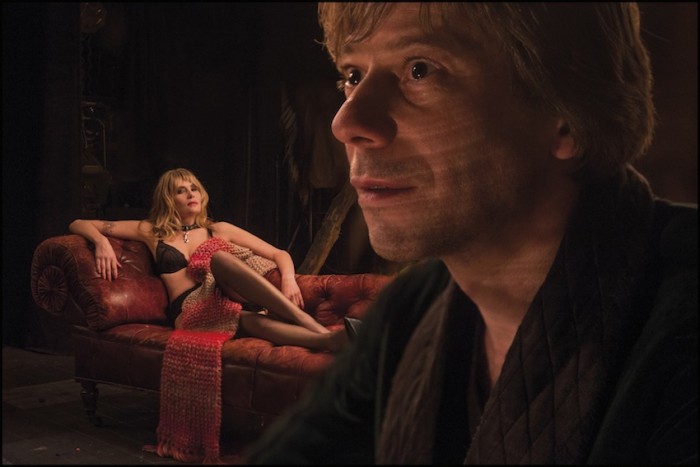
Venus in Fur (2013) / Drama
MPAA Rated: R for nudity, sensuality, and language
Running Time: 96 min.Cast: Mathieu Amalric, Emmanuelle Seigner
Director: Roman Polanski
Screenplay: Roman Polanski, David Ives (based on his play)
Review published June 20, 2014
 The Tony-winning David Ives' Broadway play of 2011 provides most of
the backbone of this adept adaptation from co-writer and director
Roman Polanski (The Pianist,
The Ninth Gate), who would pick up a Cesar award for Best Direction for
his efforts in his first full French-language film.
The Tony-winning David Ives' Broadway play of 2011 provides most of
the backbone of this adept adaptation from co-writer and director
Roman Polanski (The Pianist,
The Ninth Gate), who would pick up a Cesar award for Best Direction for
his efforts in his first full French-language film.